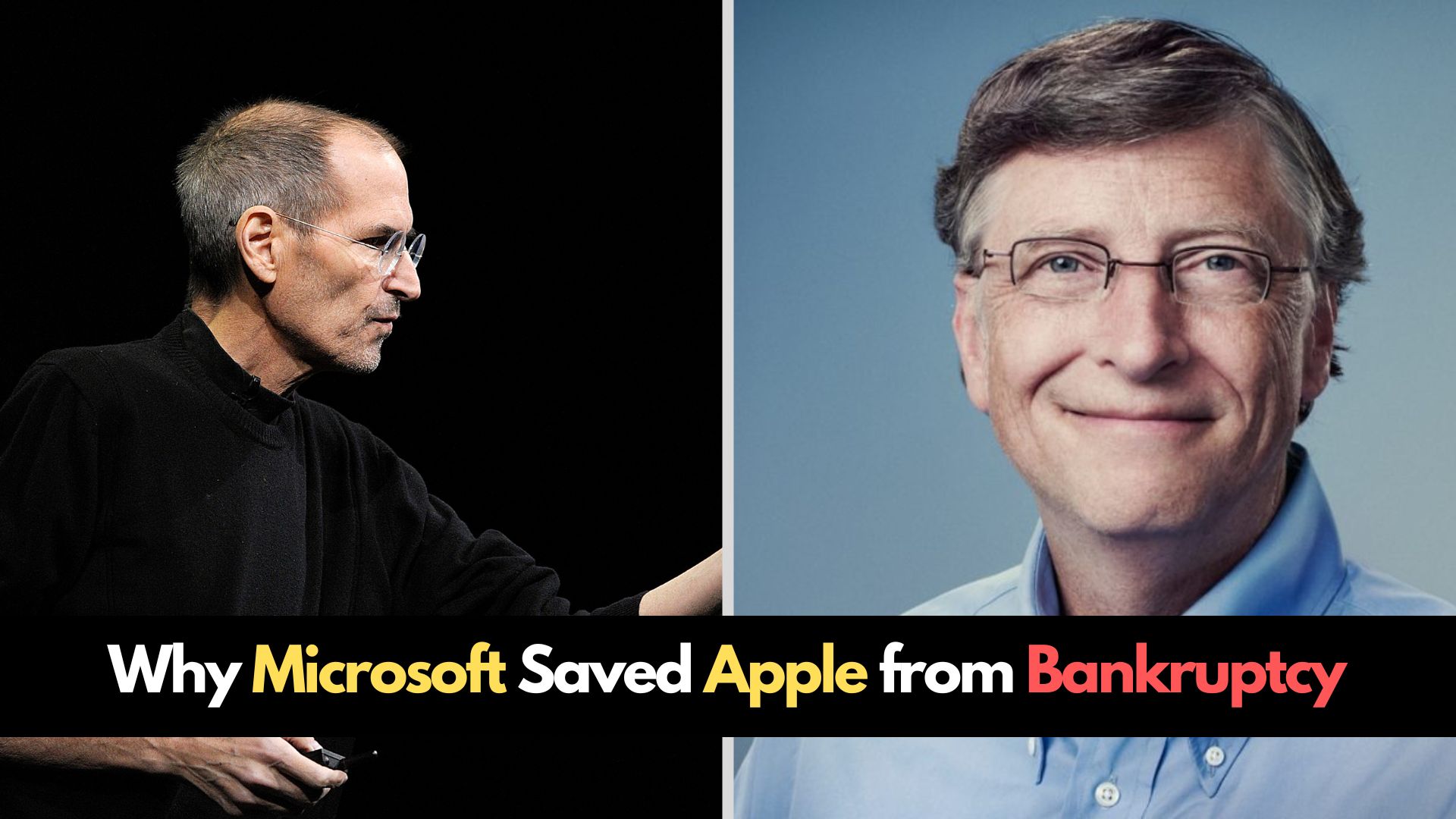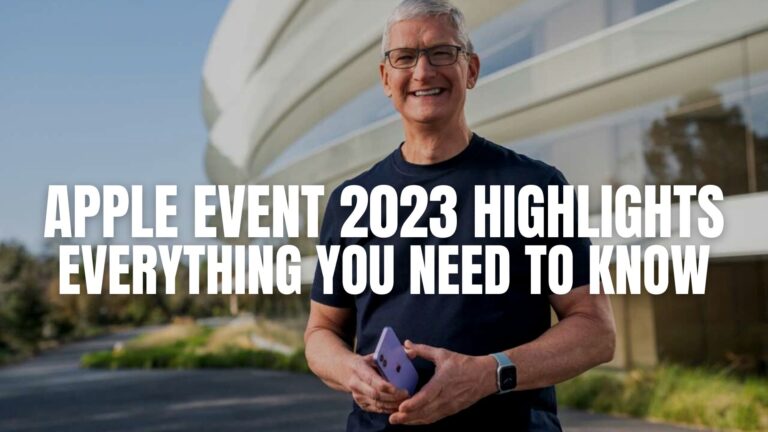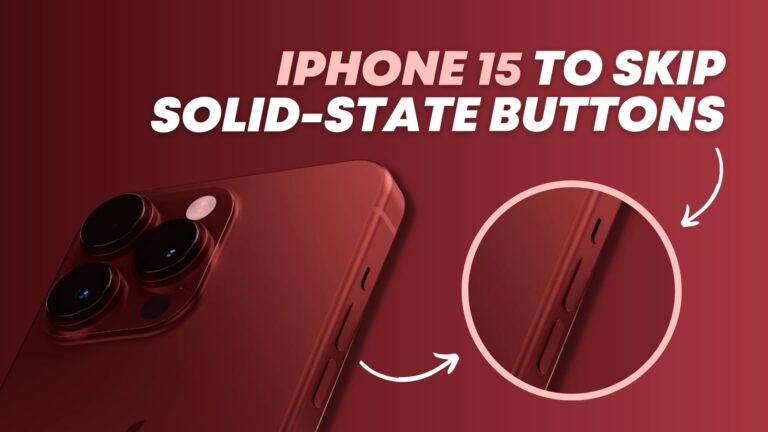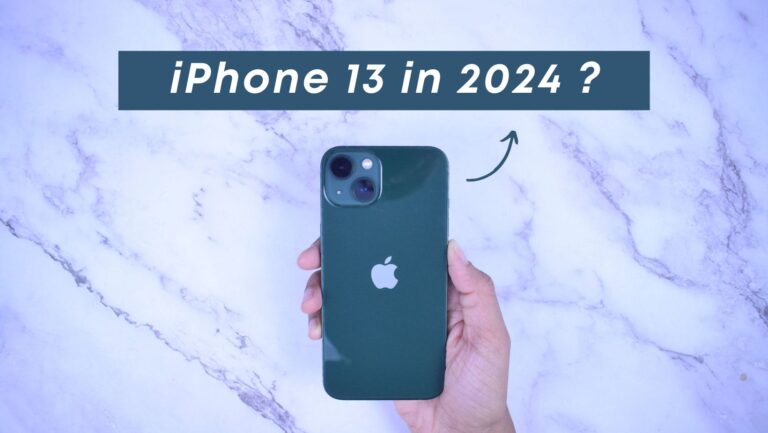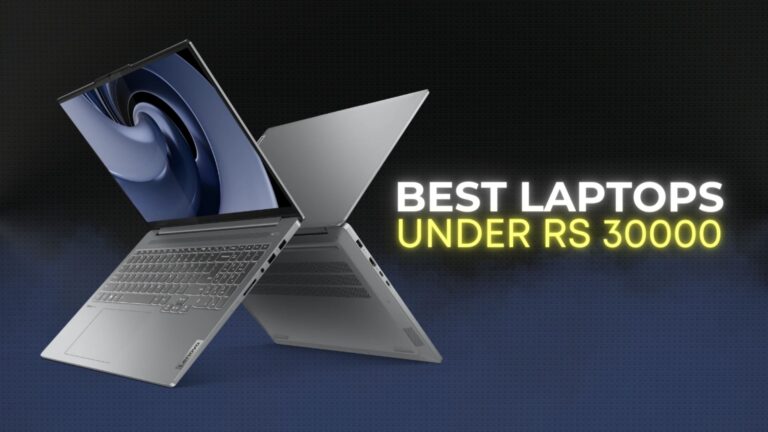In 1997, Apple was facing significant financial difficulties, with years of struggling sales pushing the company towards bankruptcy. Following the return of Steve Jobs as CEO, it became clear that Apple needed a substantial infusion of funds from a respected source within the industry. Shareholders were pulling out, and potential investors were hesitant to invest in a company that seemed to be on the brink of failure.
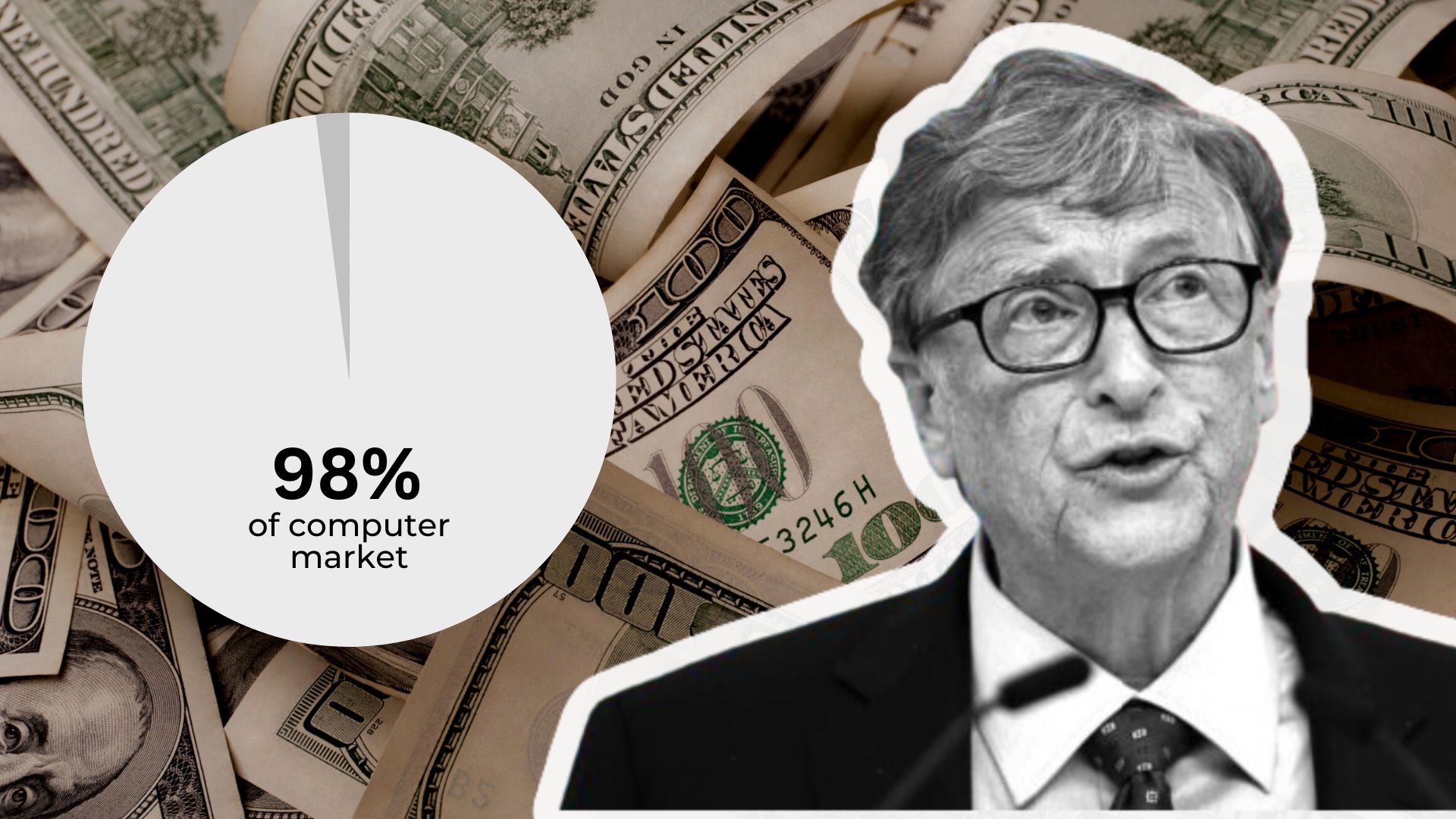
Meanwhile, Microsoft was experiencing immense success, with a whopping 98% market share of the PC operating system industry. However, this dominance drew the attention of the U.S. Department of Justice, as many considered Microsoft and their Windows operating system to hold a monopoly. After it was discovered that Microsoft had made it challenging for users to download Netscape, their primary rival in the browser market, while including their own Internet Explorer browser with Windows, formal charges were brought against the company.
Apple and Microsoft were encountering challenges in their respective domains. While Apple was in dire need of funds, Microsoft was lacking competition in the computer market. Recognizing the potential for a mutually beneficial partnership, both Steve Jobs and Bill Gates agreed to a plan where Microsoft would purchase $150 million worth of non-voting shares in Apple. This move aimed to bolster Apple’s financial standing and reduce the risk of bankruptcy while also benefiting Microsoft. By preventing their biggest competitor from going bankrupt, Microsoft could avoid being classified as a monopoly in the computer industry.
However, there was another risk to contemplate: what if Apple were to achieve unprecedented success under the guidance of Steve Jobs, who had recently returned to the company? Even in such a scenario, Microsoft would not be too worried. This is because Apple primarily competed in the high-end computer market, which typically had lower sales volume. In contrast, Microsoft was primarily focused on the high-volume market, where they received the same licensing fee, regardless of the retail price of a PC.
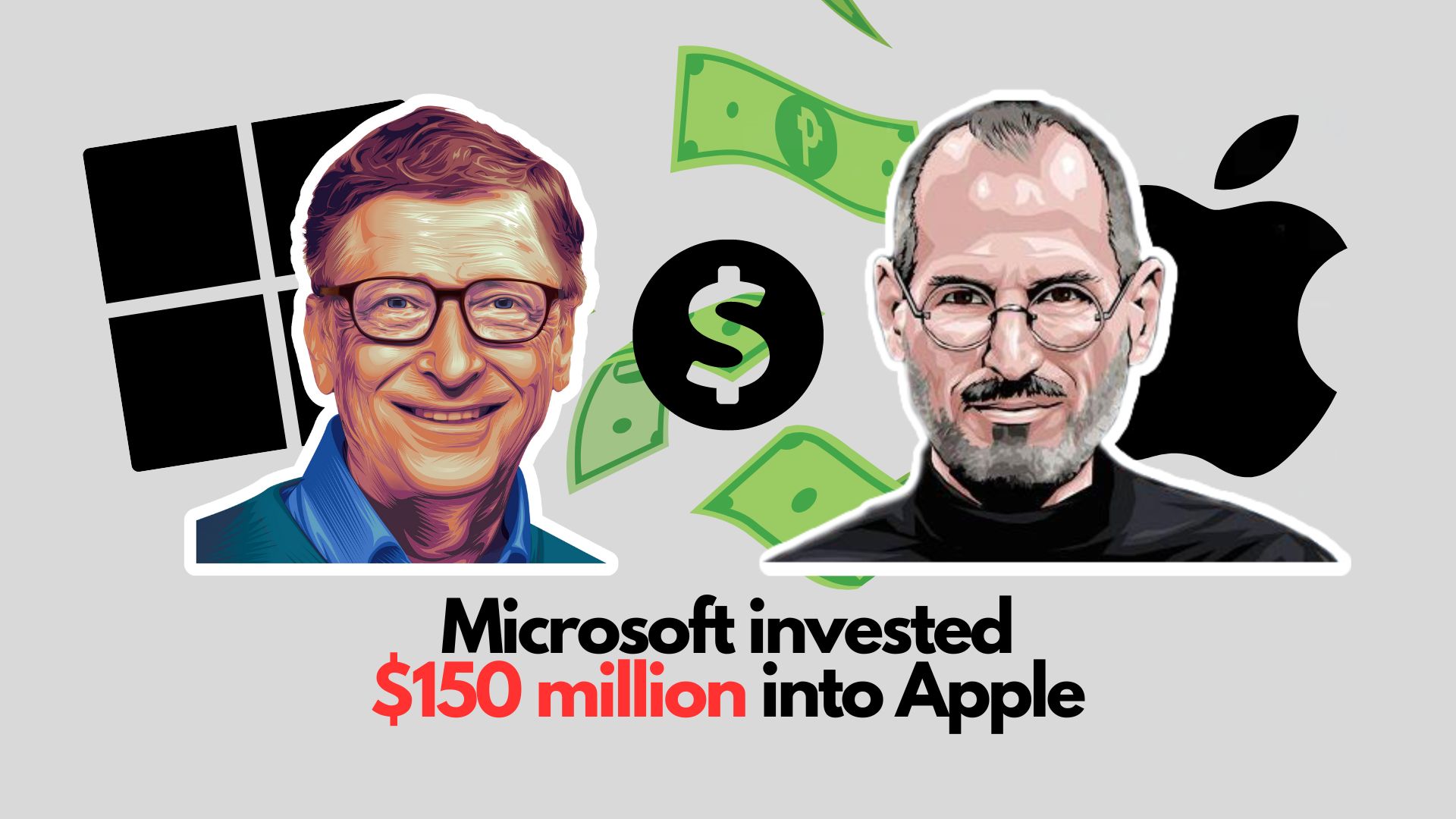
Jobs and Gates shared an understanding that their respective companies not only required each other but could also successfully coexist. As a result, they reached a deal that stunned the entire tech industry. Microsoft invested $150 million into Apple, and in exchange, Apple permitted Internet Explorer to become the default browser on Mac OS. However, when Jobs announced this arrangement, it was met with disapproval from the audience. This was because Mac users regarded Microsoft as their most significant rival and Internet Explorer as one of the least favorable browsers.
Despite the initial criticism, the partnership between Apple and Microsoft proved to be effective in appeasing the U.S. Department of Justice’s antitrust lawsuit. Moreover, this collaboration enabled Apple to avert bankruptcy and provided enough time to launch the highly successful iMac in the following year, 1998.
